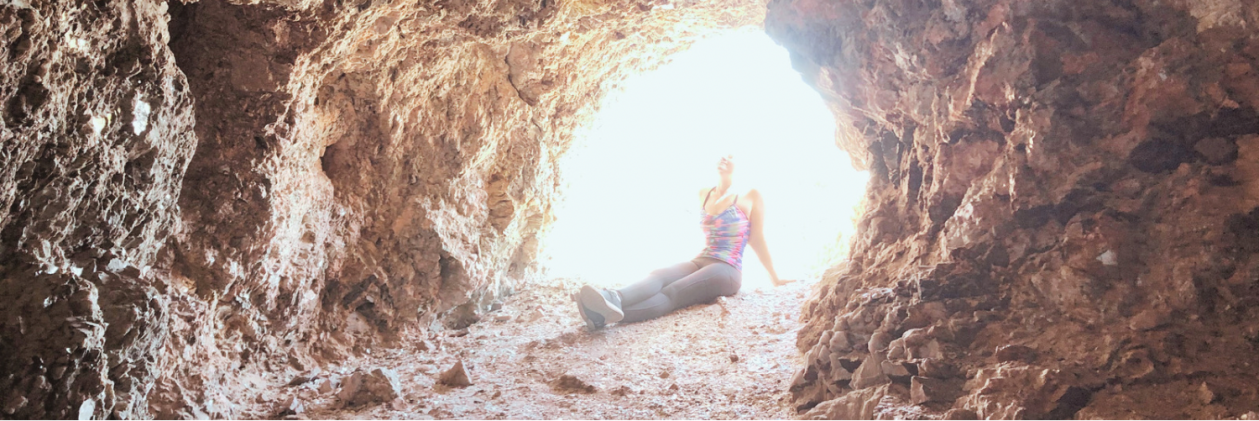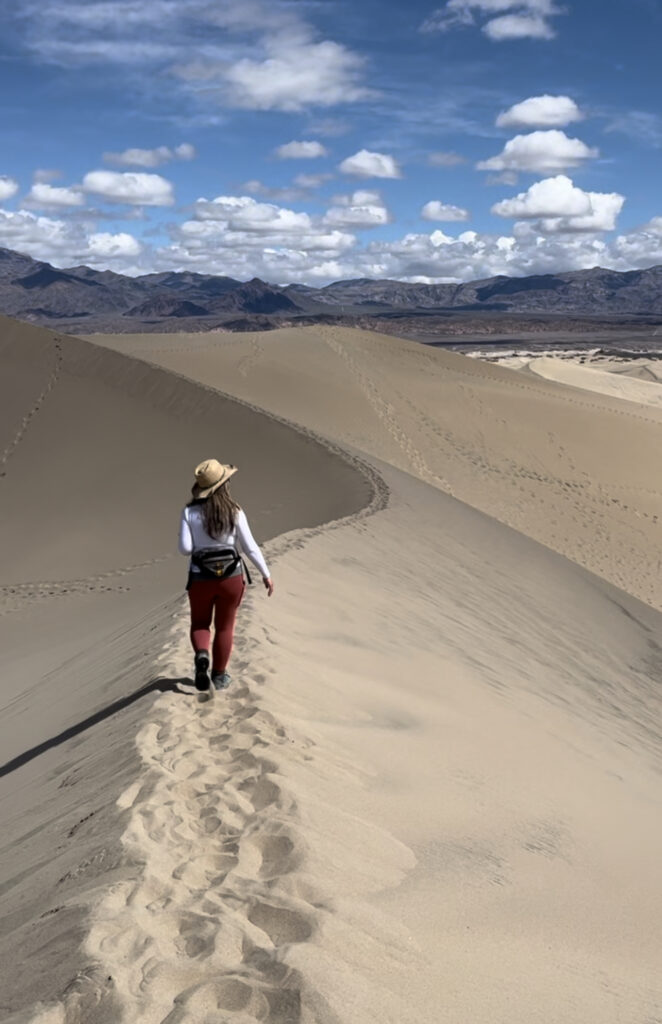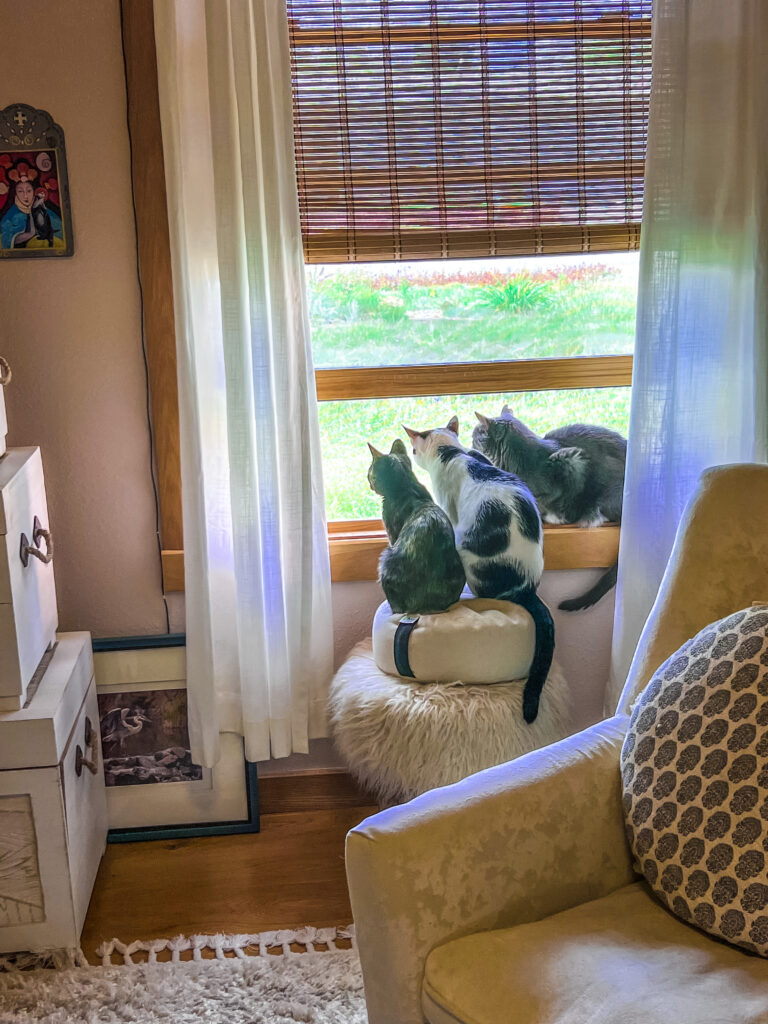Your everyday, average Highly Sensitive Person (~ 30% of the world’s population) has perfected the art of dissociation. Dissociation is the subconscious practice, often learned in childhood, of leaving our body when our stress becomes unmanageable. It is a human safety mechanism unconsciously learned as a way of protecting oneself during times of distress, physical or emotional hardship, frightening situations, or extreme uncertainty.
I see it as a subconscious process of sending our soul somewhere safe, when this 3D world becomes too intense. Children trapped in abusive, traumatic situations send their psyches elsewhere when the only other option is to stay and quite possibly sustain permanent psychological injury. Dissociation is a survival tool.
But to the Highly Sensitive Person, severe trauma is not required to develop a dissociation pattern.
Trauma is subjective. And to a population of people whose nervous system works more intensely than 70% of the rest of the world’s, dissociation is a very real defense mechanism in a world designed for the less sensitive.
American Psychiatrist, Dr. Bruce Perry describes dissociation as such:
“…a dull, spacey mood of feeling completely numb, an experience known as a dissociative state. This comes from the stress response associated with surrender, the one that occurs when the body recognizes that escape is impossible and help won’t come. Here, heart rate and blood pressure are lowered, and the person withdraws within, becoming as physically distant and small as possible, shutting out the world. This state is originally a last-ditch attempt by the body to minimize injury–but it can recur later in nontraumatic situations that recall the original trauma in some way.”
(A dissociative state, as what I am referring to in this article, is not to be confused with any of the four types of clinical Dissociative Disorders. With one of those types, Dissociative Identity Disorder, a person’s psyche fragments into multiple distinct identities, something that long ago was referred to as Multiple Personality Syndrome.)
Outside the realm of serious pathology, dissociative states are actually quite common.
In my worldview, we are spiritual beings having a physical experience on earth. Our spirit and soul can easily travel between the physical and etheric realms. So why not pull the escape hatch when life gets too intense? We all do it. The problem becomes when we’ve learned to do it so often, we have no idea we’re doing it again–leaving our bodies at the slightest provocation–essentially walking around in a half-present state.
I can tell immediately when somebody I’m interacting with is dissociated.
It’s like they’re with me, but they’re not really with me, you know? Their eyes are looking at me, but not truly seeing me. Their energy field is small and tight to their body; no movement is happening. They barely seem to breathe.
And I can tell when I, myself, have dissociated. I feel fragmented. Spacey. I can’t focus, and I don’t really feel connected to anything. I feel numb, rootless, shallow. My attention span becomes non-existent. And forget about making progress, or completing a project…that would require all of me.
Does any of this feel familiar?
Falling back on a dissociative state for me is not acceptable at this point in my evolution. I want to teach my soul and my psyche that I am safe in all circumstances; that I am here for me. Dissociation is a defense mechanism that equates to involuntarily abandoning ourselves and the people around us. I want to be present for this life, not drift through it like an untraceable specter. Resilience training helps us to stay rooted into our environment. Resilience teaches us to convert overwhelm to practical management.
Learning to stay in our bodies.
So to bring me back to wholeness, I intentionally ground.
Grounding is a self-regulation practice that is clinically proven to help you pull away from traumatic rumination, calm your nervous system, quiet feelings of overwhelm, and re-enter your body from a dissociated state. Grounding shifts your mindset from stuck to functional.
Grounding techniques are simple somatic exercises that are designed to help you refocus on the present moment to soothe anxious feelings, and to be there for yourself.
You can use grounding techniques to help create a sense of internal safety, providing distance from overwhelm in nearly any situation.
Grounding is especially helpful for shifting:
- anxiety
- stress
- depression
- emotional dysregulation
- mood
- post-traumatic stress disorder (PTSD)
- Dissociation
Feelings are a Highly Sensitive Person’s gift when channeled through a foundation of resilience. But until we build that foundation, we take it step by step, and grounding is one of our greatest somatic tools for doing so.
Some examples of somatic grounding tools are:
- Take three deep breaths, while holding your hand to your heart and feeling your heartbeat.
- Take a short mindful walk focusing on your feet on the earth.
- Mindfulness meditation
- Hold your hands under running water.
- Track where your senses are in the moment. With every sense you have access to, notice what you’re experiencing.
- Take your own pulse, focusing on the cadence whatever it may be.
- Intention. Focus on what emotional state you would like to anchor into. See it. Feel it.
- Hold an ice cube. Move it from hand to hand.
- Take a sea salt bath with lavender essential oil.
- Do some gardening, or repot an interior plant that needs more space.
- Visualize your safe place.
- Focus on five small objects around you. Feel them; hold them in your hand. Study their detail.
- Drink hot tea, or hot water with lemon.
- Read a page in a book, or read a short article.
- Recite a mantra, a prayer, or a poem out loud.
- Feel your bare feet on the grass, stone, sand, or soil.
- Use a biofeedback tool.
- Go to your bookshelf and speak outloud every title in one row.
- Visualize what your anxiety or your distress would look like it it were an object or a symbol.
- Do simple math equations in your head.
Let me know in the comments below👇 if you yourself have direct experience with falling into dissociative states, and what never fails to ground you, if so. This summer my spur-of-the-moment grounding go-to’s have been dead-heading my flower garden, visiting mineral springs, mindfully cleaning the kitchen (cleaning the kitchen has always been relaxing to me!), organizing a closet, or art-journaling. And I can’t leave out my three beloved cats, Ghosti, Zem, and Anu! Animals are miraculously grounding, aren’t they?
Questions? I am happy to answer any you might have.
Much Love,
Kristy






❤️
xoxo 🙂
Thank you for the reminders on grounding. Yes, I can dissociate also. I don’t like it when I do it. I will work on the grounding when I find myself escaping stressful situations by dissociating. It is nice to know I am not alone. Great article! I really love gardening and cleaning up my home. It brings me peace and calmness. 😊💕
I’m with you, Robin! Gardening and cleaning never fail to soothe me. 🙂 I’m so happy to hear that you will focus on grounding and increasing your awareness around dissociation. I can promise you that you will feel a positive shift throughout your life when you do. Let me know how it goes for you!
Best,
Kristy
Yes Kristy, I was physically and emotionally abused by a drunk, unhappy mother. As an adult I jump every time a loud noise shocks my body. My biggest problem is my anxiety and being numb when I get a bad health report from my Doctor.
Listening to beautiful music; being IN THE MOMENT and conscious breathing is a great grounding for me.
I’m so sorry to hear about the anxiety that still lives in your nervous system, Maxime. Our body retains deep memories of past stressors, doesn’t it. Small somatic tools will help you stay in your body when you tend to numb out from medical information. Have you tried putting your hand on your heart, or taking your own pulse ~ not to count your heart rate, but to simply feel the rhythm of its beat. Saying the words, “I’m here” will help to ground you too. Letting your body know you’re here for it. You may already be doing all of these things.
I love all your grounding tools! I use those too! Thank you for sharing your process with me, Maxime. I’m happy you’re here.
I am just putting together the pieces of being a HSP and dissociating. I knew a dissociated during a very stressful time in my life, it took me years to figure out that is what the name for it was. I just recently came to the understanding that I use dissociation as a coping mechanism. I was not abused nor have I been in a terribly traumatic situation. I believe I started to use dissociating as a way to cope with migraine pain. I would leave my body and become as small as possible to hide from the monster that I imagined the pain as being. I used dissociation as a coping mechanism for leaving an emotionally abusive relationship. As I look back on my life I see that I have dissociated anytime I feel overwhelmed. I am in a season of dissociation now. Your article was the final puzzle piece.
Jill what remarkable insight. And you make a beautiful point–Dissociation is a very real coping mechanism, and sometimes it’s a humane one~ when we’re in a chronic situation that we cannot escape for example. The deep psychological imperative is to raise our awareness to the point that we can see how we’re using it, and to make certain that we’re not navigating life in a numbed state at all times. Sometimes we use it so often that we turn to it at the slightest sense of overwhelm without really knowing that we’re doing it. I’m so sorry that you have dealt with chronic migraine pain and the harm of an emotionally abusive relationship. I’ve suffered both in my life as well, and absolutely dissociated through it. Integrating a deeper awareness of what it is, and how we might be more conscious of it can be a remarkable step toward our own emotional freedom.
Thank you for sharing a little piece of your story here. Your awareness helps others with their own.
Best,
Kristy
I’m an 25 year old HSP male and just recently learned about dissociation a year ago and had no idea I was doing most of my life on and off. The past 5 years I was doing it constantly and knew something was wrong. After finally coming back and becoming in touch with my body physically and emotionally, I experienced the most intense discomfort I’ve ever had. What I learned from my experience was to 1. Not lie about how I feel or hide my true self. 2. Learn to feel pain and sit through the discomfort.
Nick, this is true wisdom. Thank you so much for sharing your experience. It is so true that so many of us choose dissociation over the pain of “thawing out” after, in so many cases, years of avoidance mechanisms. But the true freedom, as you’ve so eloquently stated, is in learning to stay present, stay awake, stay true to ourselves, and learn to stand in the face of intensity. Because when we shut down to the pain, we shut down to the joy too. Thank you for being here.
Dissociation has always been my friend. It is a state I can contol easily. As a child I called it “Thinking” and would deliberately focus my attention inwardly in boring or stressful situations. choosing to imagine I was somewhere else doing somehing entirely different. As soon as I learned to read, (sometime before I went to school) I took a book with me everywhere and could “disappear” any time, setting an internal cue when to start paying attention again. Thinking and reading are still useful ways to handle overwhelming stress for me. Id this common–the ability to control and return at well?
Nancy it sounds like you took an ability that many people get lost in, and learned to harness it for your own imagination, creativity, and intuition. Being able to control it and return at will is an intuitive skill that tells me you’re likely gifted in this regard. Dissociation isn’t harmful unless it keeps us from engaging with life, or the people in our lives, keeping us isolated from truly living. By what you’ve described to me, you’re using it in a helpful way.
I hope what I’ve written makes sense. This is a GREAT question, and I’m happy you asked it!